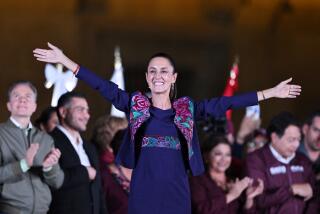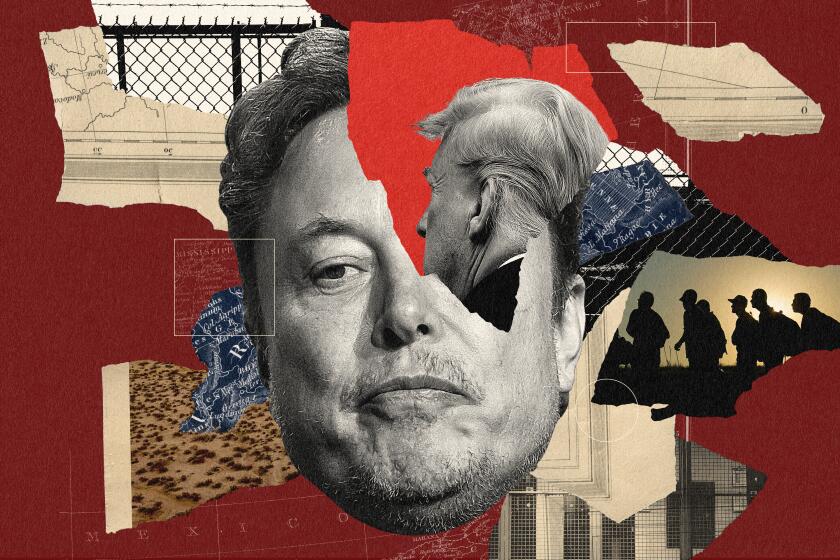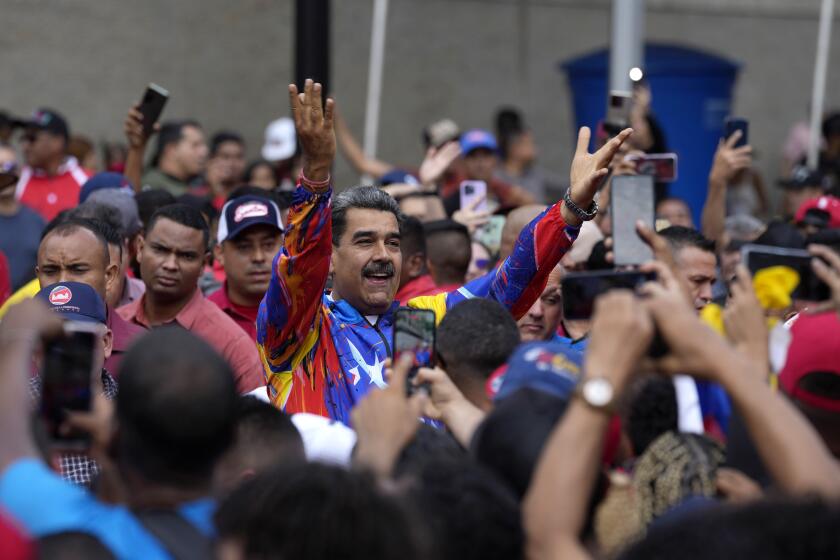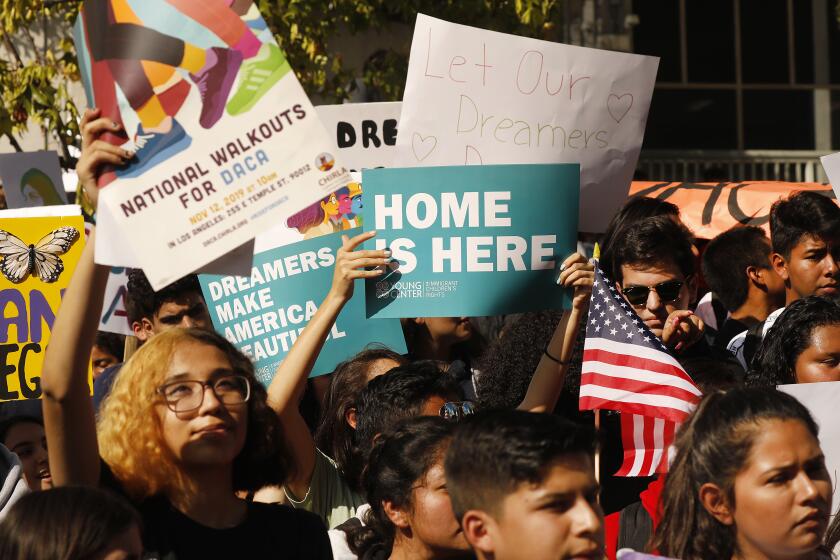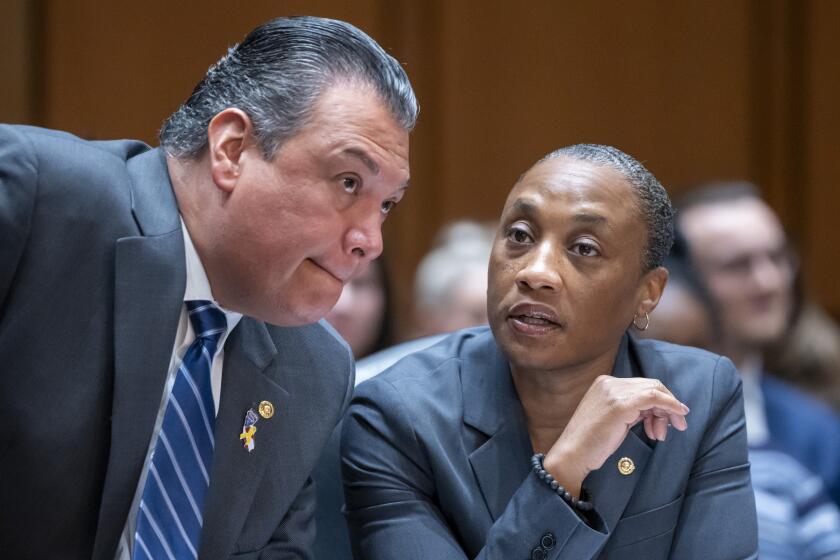President Vs. Congress Over an Immigrant : CHADHA The Story of an Epic Constitutional Struggle<i> by Barbara Hinkson Craig (Oxford University Press: $22.95; 288 pp.) </i>
Chief Justice Warren Burger, after writing the majority opinion in Immigration and Naturalization Service (INS) vs. Chadha (1983), modestly allowed that it would count among the 50 most important cases in the court’s history.
It was certainly important for Jagdish Chadha, ending for him a 20-year struggle with the bureaucracies of three countries to find a homeland. Chadha was born in Kenya but, being of Asian descent, was not welcome there after independence. His nominal British citizenship meant nothing, once Great Britain closed its doors to Asian immigrants from East Africa. So, encouraged by a Peace Corps volunteer, he tried the United States. Through one of a number of twists of fate in this story, his American friend would eventually find himself arguing for Chadha’s deportation before the Supreme Court.
By Barbara Craig’s account, Chadha appears to have been an exemplary candidate for citizenship. As a student and as an employee, he exhibited all the virtues that the most moralistic of immigration officials could have in mind when applying the criterion of “good moral character.” But he had trouble finding a job; his visa expired, and so began a 13-year encounter with the insolence of office and the law’s delay. He won a stay of deportation, only to have it vetoed by Congress. But in the end, he won.
Or did he? Craig compels the reader to ask whether INS vs. Chadha was really his case at all. She does so by letting the story tell itself, enriched with her industrious interviewing and monitoring of the actions and pronouncements of all the participants in this drama. This is gratifying in the work of a political scientist, from whom one expects statistical tables, terminological assaults on the English language, and models drawn irrelevantly from some textbook of scientific methodology, all of which do more to muddle the mind than to clarify events. So if I say Gogol should have written this story, I do not mean to carp, but only to point out that talents like his are needed to describe dead souls enmeshed in bureaucratic procedures.
The House of Representatives vetoed the attorney general’s decision to allow Chadha to stay in the United States. With this act, INS no longer opposed Chadha, but, as part of the Executive Branch, opposed Congress. The one-House legislative veto, attached to bills creating or setting rules for administrative agencies, allowed one House of Congress to veto the decisions of officials holding offices created by Congress. This kind of veto was viewed by its defenders as a way of making sure that bureaucrats behaved themselves. It was attacked, especially by the Executive Branch, as a breach of the separation of powers. Congress, opponents of the veto said, had got into the business of carrying out the law. Veto proponents, they said, had forgotten that, in making law, Congress is forever prohibited from saying what it means.
At this point, Chadha began to acquire new friends. His struggle with INS as a powerless alien aided only by a dedicated attorney of limited clout was transformed into a case attracting lawyers who, in Craig’s phrase, “know their way around Washington.” Now the President himself wanted Chadha to win, or anyway wanted Congress to lose. It is not clear whether the argument was about constitutional functions of government or a struggle for power, with the Executive and Legislative branches both believing they should have more. In any case, Chadha won by a 7-2 margin in the Supreme Court. Justices White and Rehnquist dissented, White accusing the majority of failing to recognize the emergence of the administrative state.
Craig does not analyze the court’s arguments. She likes Chadha and applauds his victory. She is thus in a sense complacent about the adjustment of power between the Executive and Legislative branches, since the net result was justice for an abused individual. Voters, however, did not cast their ballots for Carter or Reagan because Congress tried to deport Chadha. They responded to candidates who promised to get government off their backs. Both Carter and Reagan, as candidates, favored the one-House veto as a means to that end. As sitting Presidents, Craig adds, they thought differently. From the Oval Office, the veto seemed to encroach on Executive Branch turf.
So one of the three branches of government took up Chadha’s cause. That Chadha won may be gratifying. But Craig, in refusing to comment on the merits of the majority opinion in Chadha, fails to ask whether it was a good thing that when Chadha won, the Executive Branch also won. The deepest irony is that Chadha won because the case was no longer his. Two giants dropped a puny victim to fight each other. And the victim escaped.
More to Read
More to Read
More to Read
Start your day right
Sign up for Essential California for news, features and recommendations from the L.A. Times and beyond in your inbox six days a week.
You may occasionally receive promotional content from the Los Angeles Times.

